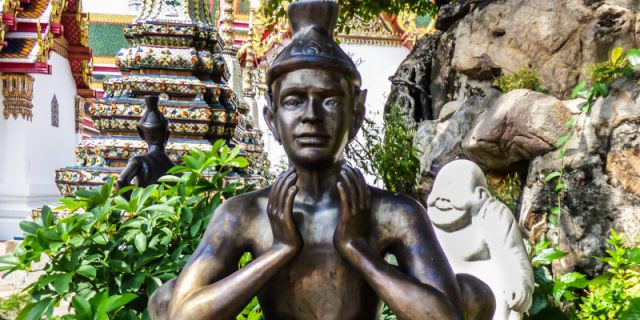
In this post, we take a look at the ancient Greek concepts of ether (aether), pneuma, and psyche, how they relate to each other and to the idea of Vital Force or Vital Life Energy.
Aether
In ancient Greece, ether or aether denoted either the bright upper atmosphere above the clouds, which was considered a material element of the cosmos and a form of air (aer in Greek), or the fifth classical element alongside the terrestrial air, water, earth, and fire. In the European Middle Ages ether was also addressed as quintessence, but the ideas around it started to diverge from the early Greek concepts.
In any case, to be clear and unambiguous: in this post we’re not talking about ether as a class of organic compound (either as liquid or gas) or about the aether in physics, such as discussed in the 18th and 19th century.

Aether, in Greek mythology, was considered the pure essence that the Gods breathed, filling the space where they lived (above the clouds in the upper atmosphere), and the substance everything else originated from. Aether was also personified as a deity. Yet, it was the Greek philosopher Aristotle (384 BCE – 322 BCE) who developed a theory of aether as the fifth element (which he himself didn’t label aether, by the way, but just as the fifth element).
This fifth element, which later was seen as the actual first essential element where all other elements spring from, was considered very different from the other four terrestrial elements. Aether had no specific qualities, was not hot, not cold, didn’t change, was a kind of void or space, intangible, but still existing, a subtle type of matter, and moving in a circular motion, additionally being responsible for or causing the essential “heat of life.”
Some Greek philosophers considered aether and aer the same things, or even the actual arche (or at least emanating from arche), the latter being a Greek concept that denotes the “beginning”, “origin,” “source of action,” “from the beginning,” or “first principle.”
By the way, in ancient India a similar system of five elements is found called Pancha Bhoota, used especially in Ayurveda, and defined as Akasha (aether, space or void), Vayu (air), Tejas or Agni (fire), Apas or Varuna (water), and Prthivi or Bhumi (earth).
Pneuma
The Greek pneuma, meaning “breath,” also roughly translated as “air in motion,” or “wind,” was addressed by the Greek philosopher Anaximenes (586 BCE – 526 BCE) as the Greek aer, being the element from which all things in the universe originate.
In fact, in the most early usage the concepts of aer and pneuma were synonymous. Additionally, Anaximenes also considered the psyche (soul) a form of aer (air). Moreover, pneuma was also used as a reference to “spirit” or “soul.”
Later in ancient Greece, pneuma becomes the circulating, moving air that we inhale, and which is necessary for the function of vital organs and our ability to move, essential for maintaining vital heat in the body, and the element that sustains our consciousness.
Bit by bit, pneuma becomes the concept of the “breath of life,” the human soul or psyche, and the active, creative principle that forms and sustains the individual and the cosmos, including animate objects, which is obviously a concept of Vital Life Energy or Vital Force. The highest form of pneuma is considered the divine spirit, the soul of God.
Psyche
The exact denotation of the Greek word psyche (ψυχή) is still under debate, but it has been used by Greek philosophers in a variety of ways, including “life”, “to blow,” “spirit,” “soul,” or “self,” among some other meanings.

Nevertheless, psyche was often used synonymously with pneuma, having similar properties of motion and moving, and as such also analogies with wind, breath, and breathing.
The Greek philosopher Plato (428 BCE – 347 BCE) described the psyche as the spirit of the universe, the immaterial principle of movement and life. Homer (8th century BCE), the famous Greek poet, saw the psyche as the animating principle of a human or animal body, the vital spirit, soul, or life.
The ancient Romans synonymized the Greek word psyche to their Latin anima (soul, breath, or life), a word that comes from the Greek word anemos, meaning “wind” or “breeze,” and obviously refers to movement and moving.
The derived Latin words animationem (English: animation) and animare meant “action of imparting life,” “bestowing life on,” “give breath to,” “to enliven,” “to endow with a spirit.” Nowadays, animation is used in the sense of vitality, motion, vigor, liveliness, or the appearance of activity or life.
In Conclusion
The concepts of ether, pneuma, and psyche in ancient Greece where in a constant state of flux, highly flexible and still under development, that is, they changed over time, and depending on which philosopher occupied himself with these ideas they were seen as different, similar, synonymous, related to each other, or influencing each other.
Nevertheless, they all — in one way or the other — referred to the first principles of life, that is, to vital force or vital life energy, being responsible i.e. the creative and animating cause of the universe, the heavens, the earth, and the individual human being.













